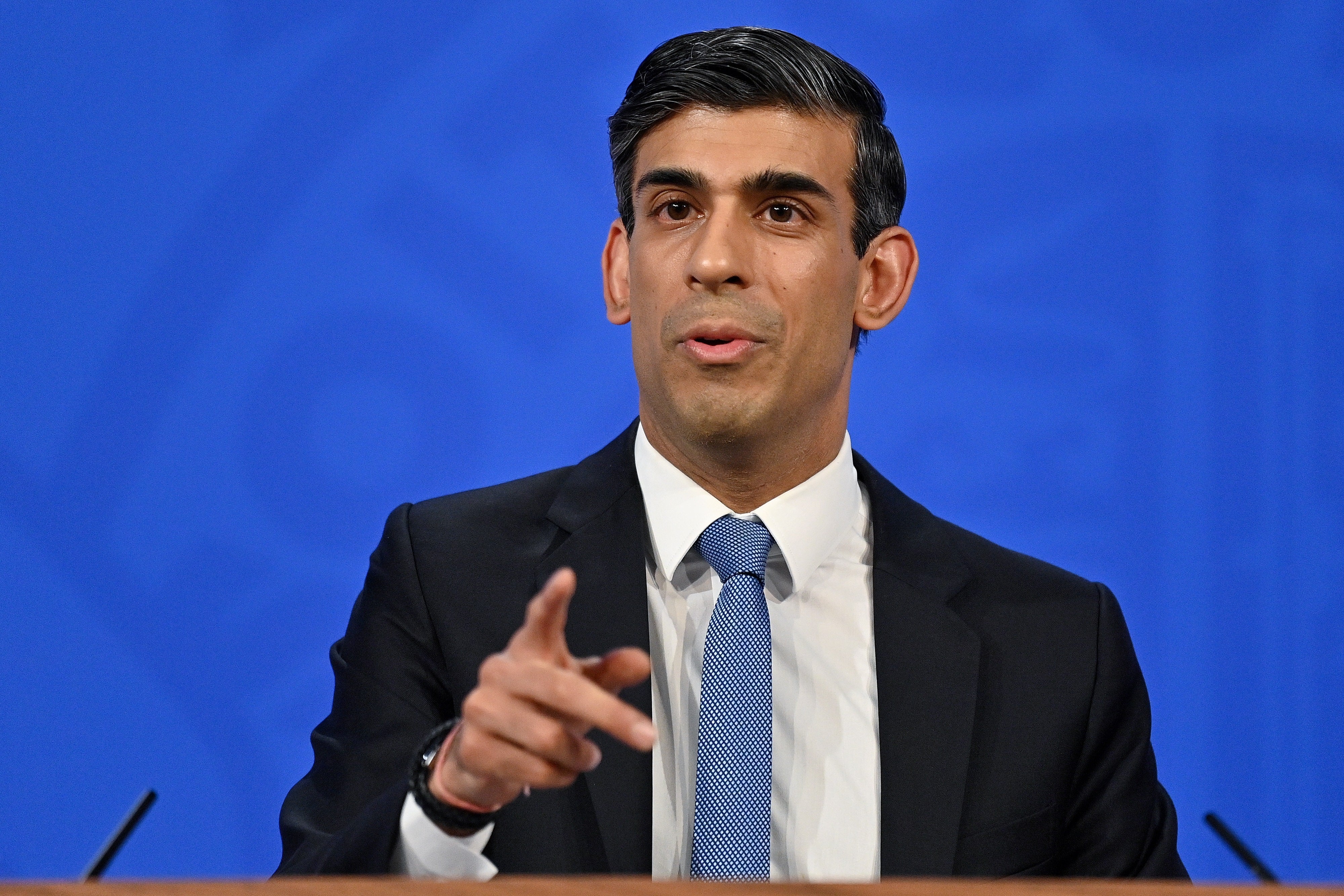The dreaded R-word is being whispered in Whitehall
With inflation soaring and families facing the worst income squeeze since the oil price shock of the 1970s, the calmer waters Sunak hoped for could be replaced by a tsunami, writes Andrew Grice


“We are about to find out who the real Rishi Sunak is,” a former minister told me. The chancellor had planned to make a bland spring statement on 23 March to symbolise a return to normal politics after the coronavirus pandemic – which, in his eyes, includes public spending restraint. But the backdrop to his Commons statement has changed dramatically after Russia’s invasion of Ukraine. The new normal is anything but.
Although Boris Johnson loves to trumpet that the UK has the “fastest growth in the G7,” the dreaded R-word – recession – is being whispered in Whitehall. With inflation soaring and families facing the worst income squeeze since the 1970s, the calmer waters Sunak hoped for could more resemble a tsunami. A typical household will see their income fall by £1,000 this year as food, petrol and energy price rises bite.
Despite that, the chancellor is resisting calls from some cabinet ministers, including Kwasi Kwarteng, the business secretary, to expand the £9bn package announced last month to cushion the rise in domestic energy bills. It would have to be raised by £12.5bn to achieve the same level of support because the energy price cap could now rise to £3,000 a year in October.
Sunak wants to delay a decision until nearer the time, but jittery Tory MPs want immediate action. Some fear, as one put it, that ministers “don’t ‘get’ just how badly people are going to be hit”. The Treasury is playing down expectations, presumably so struggling families will be grateful when Sunak gives some limited help to low-income groups on 23 March. As things stand, it looks like being at the inadequate end of the spectrum.
Sunak should take up an ingenious idea from the Resolution Foundation think tank. It notes that most state benefits are due to rise by 3.1 per cent next month, even though inflation is heading towards 8 per cent this year and could even reach double figures. That amounts to a £10bn real-terms cut in benefits.
Although inflation would ensure a bigger increase in April 2023, that won’t help families get through the next 12 months, so the foundation proposes swapping next year’s rise with next month’s. “This is not just another difficult year,” said Torsten Bell, its chief executive. “As chancellor, you don’t walk into a recession saying ‘there is nothing I can do.’”
Although he won’t want to admit it, Sunak’s post-pandemic strategy is under severe strain. Next month’s planned rise in National Insurance contributions is again being called into question as some ministers, Tory backbenchers and Labour MPs argue that scrapping it would ease the cost-of-living crisis. Yet doing so would deprive the Treasury of £12bn a year needed to cut record NHS waiting lists and help the ailing social care sector.
Tory MPs’ demands are hardly consistent. They also want a £10bn a year rise in defence spending to meet the Russian threat and ensure the UK remains Nato’s biggest European spender after Germany’s landmark decision to hike its defence budget. Keeping ahead would certainly appeal to Johnson. More government investment in energy will also be needed in the new world and Johnson will set out his plans to make the UK more self-reliant next week.
Higher inflation will push up the cost of servicing the government’s debt – by about £11bn in the current financial year for starters. Inflation also gives Sunak a dilemma over public sector pay. Johnson wants to claim austerity is over but it would cost about £10bn to reflect higher inflation in wage awards. Yet if Sunak doesn’t do that, workers would face another pay cut on top of a decade of real-terms reductions.
All these demands put in jeopardy Sunak’s plans to cut income tax before the next general election to restore the Tories’ tax-cutting credentials. That goal doesn’t add up in the new world.
Sunak, the fiscal conservative who splurged more than £400bn in the pandemic, believes that was a “once-in-a-generation emergency”. Allies argue that the government cannot step in to solve a global problem like soaring energy prices.
He and Kwarteng have even suggested the public will be willing to make sacrifices to stand by the Ukrainian people. But blaming the fall in living standards on the war won’t wash; everyone knows the squeeze was coming well before the invasion.
To keep up to speed with all the latest opinions and comment sign up to our free weekly Voices Dispatches newsletter by clicking here
Will Sunak still be the Mr Nice who saved jobs with his bold furlough scheme or become the Mr Nasty who rejects calls to help hard-up families through a very difficult year?
He offered a clue in his Budget last October, when he asked: “Do we want to live in a country where….every time prices rise, every time a company gets in trouble, every time some new challenge emerges, the answer is always: the taxpayer must pay? Or do we choose to recognise that government has limits?”
That points to him toughing it out this month, while leaving open the option of announcing more cost-of-living measures in his autumn Budget. That would be a mistake. Sunak should acknowledge that the deeper-than-expected crisis is a second “once-in-a-generation emergency” for millions of families and announce more help when they need it. Now.






Join our commenting forum
Join thought-provoking conversations, follow other Independent readers and see their replies
62Comments